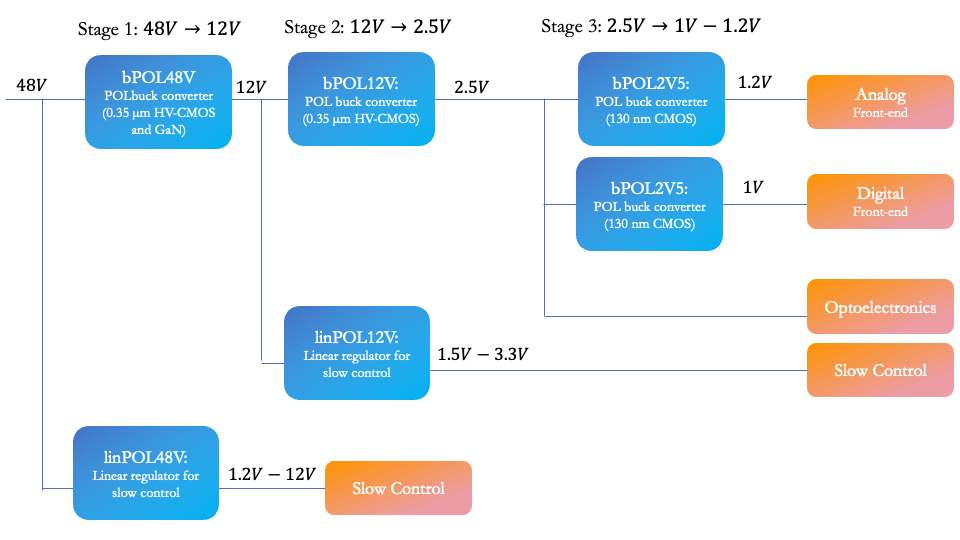Power Distribution in HEP experiments
A power distribution scheme based on several conversion stage is proposed to HEP experiments.
The different conversion stages are represented in the following picture, including the detialed power distribution scheme:
bPOL48V is a new DCDC converter developed under the EP-WP5.2 R&D program. It features conversion ratio from 48 to 12V, with maximum output current of 12A. Radiation gardness specifications are TID=50rad , DD=4e14n/cm2 and SEE up to 46MeV/(mg/cm²)
LinPOL48V is a linear regulator to provide small regulated power in the range of 1.2-12V from the main 48V line. Radiation tolerance as for bPOL48V.
bPOL12V is a replacement for the FEAST2 family of converters tailored at the radiation environment of the LHC trackers (50-100 Mrad, 5e15 n/cm2, 4e15p/cm2). The replacement is necessary given that FEAST2 converters systematically fail at neutron integrated fluxes of about 6e14 n/cm2.
bPOL2V5 is a new buck converter rated to a maximum of 2.5V input voltage. This is useful to build a 2-stage distribution system where the output of a bPOL12V is used as intermediat bus voltage, while bPOL2V5 is the second stage converting it down to 0.9-1.5V as required by the front-end electronics. Radiation and magnetic field tolerance specifications are at the HL-LHC tracker levels.
LinPOL12V is a linear regulator to provide small regulated power in the range of 0.9-3.3V from the main 12V line. This circuit has been produced for the experiment on best effort basis, under the condition that the experiments qualifies the part for their specific environemnt (electrical, radiation and reliability). Tests are on going
More information on these new converters can be found in the "Info and Datasheets" page.
Content of this web site
This web site has been created to convey information to the HEP users about the DCDC converter ASIC and modules. The most detailed information can be found in the datasheet section, while under the publication header a list of other documentation is presented.
Contact information
For any additional information or enquiry, please write to: dcdc.support@cern.ch

